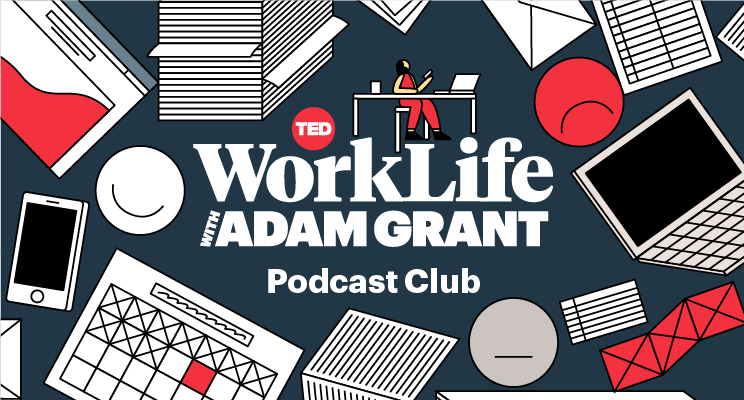
Burnout Is Everyone's Problem
During a pandemic, the jobs of health and safety workers become even more critical. As they put themselves in harm’s way, we need to make sure we care for the caregivers.
With that in mind, today’s episode of WorkLife is on burnout. Meet a teacher, a doctor, and a firefighter who have overcome exhaustion by redesigning jobs and changing cultures.
You can listen here and discuss below. Highlights:
Burnout is not in your head. It’s in your circumstances. Since workplaces are responsible for the causes, they need to take responsibility for the cures.
You can reduce burnout with demand-control-support. My favorite model focuses on three strategies: reduce the demands of the job, give people more control to manage them, and provide more support to help them cope.
Being fired up depends less on big triumphs than small wins. The strongest buffer against burnout seems to be a sense of daily progress. We feel rejuvenated when we move forward on our goals and help others achieve theirs.
DISCUSSION QUESTIONS
(1) What are your favorite small wins?
(2) How can you reduce the demands of your job, gain more control, and find more support?
(3) What else have you learned about how to prevent and treat burnout?
(4) What can we all do to help care for the caregivers around us?
New episodes of WorkLife with Adam Grant come out every Tuesday this spring. Listen now on Apple Podcasts, Spotify, or on your favorite podcast player.


Healthcare Leader ■ Build strategy, operations, IT, marketing, uniting clinical excellence with business growth
3yJust re-listened to this episode again. As always, found additional nuggets to take away. However, I was struck that most of the advice seemed to be for employees and/or employers to consider how to change their work culture for their employees. I would be curious to see if the advice is different when you're talking about a CEO/Executive Director who reports to a Board of Directors.
Product Manager at Upside
3yYes! Sprintwell couldn't agree more, which is why we're organizing a free, virtual event to help leaders alleviate burnout by addressing's the role that businesses play in it. Join us: https://abound.sprintwell.com/ !
Payroll Specialist at Mosaic
4y“It's not the load that breaks you down, it's the way you carry it.” ❤️
Human Resources Generalist
4yBurnout can fill you with such a consuming anxiety that you begin to question your skills and abilities which is unfair! If you repeatedly ask for help you should receive it! I became full of fear and anxiety because I could see everything snowballing and spiraling out of control. I ended up having to leave a role which I loved helping my organization all because I was not provided support!! I left 18 years of consistent hard work to create seamless systems however as the company grew my role demanded support which I never received. A manager should always listen to workers and should have vision to see what’s needed.
Principal BSA-Solutions Architect at Red Hat
4yI’m never comfortable with putting all the blame for a problem on something or someone else nor am I comfortable with putting the blame entirely on the individual. There’s always valid excuses. For example why not blame the universities for burn out and social ills caused by companies? Isn’t it the universities that educate, prepare and qualify the people who run these companies? How about the university professors? See, it’s easy to blame and there’s plenty of responsibility to go around. How about blaming the lack of individual responsibility? Companies are not people (unless they are making political campaign contributions). Ultimately an employee can change the quality of their work life or a manager can do much, as well. A professor can teach personal responsibility too. Rather than blame, people should take responsibility to promote the common good for theirselves and others.